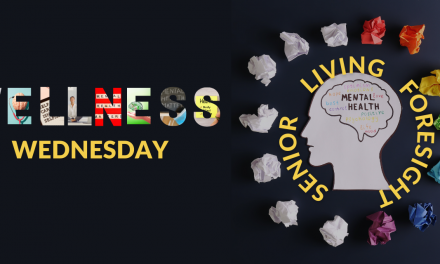How do we stop stigmatizing our residents?
By Steve Moran
Several weeks ago after the Senior Living Dining Association Conference, my wife and I drove out to Fripp Island to spend a few days at the home of my friend, Faith Ott, founder of SageAge Strategies, (a Senior Housing Forum Partner). One evening we were all invited to dinner at the home of her friends, Dan and Mitzy. After dinner, Dan — who is a very accomplished musician — sat at the piano and played for us. After about 20 or 30 minutes he completely faded. He seemed to be having trouble remembering the correct notes and was forgetting words.
We mostly chalked it up to not having practiced much in the last few weeks and being tired. It was only later that I learned he was suffering from a head-splitting migraine and struggled mightily to give us what he gave us — although, even though he was struggling, it was still pretty amazing.
Fast Forward
A number of weeks after that little vacation experience, I had the opportunity to spend an afternoon hanging out in a memory care community. While there, I sat at a table and worked, just kind of watching the flow of the day. It was a great experience, but it was a real reminder of how tough what we do really is in the flesh.
In another area, there was a piano concert going on. I could hear tunes from the movie Sound of Music drifting into my ears. There were some missed notes and it was not concert level for sure. Nonetheless, I liked it a ton and wondered if it were a resident playing (I am thinking that this assumption was maybe exactly what this article is about and feel I am guilty myself).
I wandered over to more fully enjoy the music and sure enough, it was a resident — something I could tell by the emergency call pendant he was wearing — and I made the assumption, rightly so, that it was someone from independent living or assisted living.
It was delightful. The memory care residents loved it. I loved it. The missed notes were insignificant. However, I still had work to do, so I headed back to my computer. I said something about the music to a team member I passed by, who responded like this:
“Yeah, he comes over every week and plays the same songs over and over again — and just part of it, the part he knows.”
The subtle underlying message was . . .
“It was just a resident playing, so you shouldn’t expect much anyway.”
It really struck me that in one case [Dan] it was just part of the human condition and in the other case [the resident] the attitude was “What more could you expect?” And yet, I am not sure it was really that much different.
It’s Complicated Though
As I continued to think through the differences, I begin to realize that in some sense it is or could be different. I am not sure exactly how we figure this out. On one hand, we have some amazing residents who are — at least mentally — every bit as capable and competent as those who are not residents . . . yet, even that is not quite right. In many cases, they are even more capable, competent, and wise than those who are not residents.
This is particularly true with independent living residents. I have talked to many CCRC residents — who chose to move into senior living for lifestyle and long-term security reasons or because their spouse needs care — who have been shocked to find they are treated differently . . . even less than . . . simply because they live in a senior living community.
Yet, there are many residents who have diminished capacities. This is a reality. There are times when one of those residents might play an instrument or sing a song or paint a picture — and we celebrate those achievements! Because — for their limited capacity — they are amazing (even though they are not actually amazing, perhaps even embarrassing).
So the question is this . . . how do we treat residents like they are normal real people when they still have the same cognitive and social skills as the rest of us — if not better cognitive and social skills — while, at the same time, recognizing the special achievements of those with declining capabilities?
Getting This Right
Nirvana for senior living is getting older people to move in because it is cool since it will make their lives better because they will be able to maximize the last chapters of their lives. We will never get there when we as an industry stigmatize our residents.








